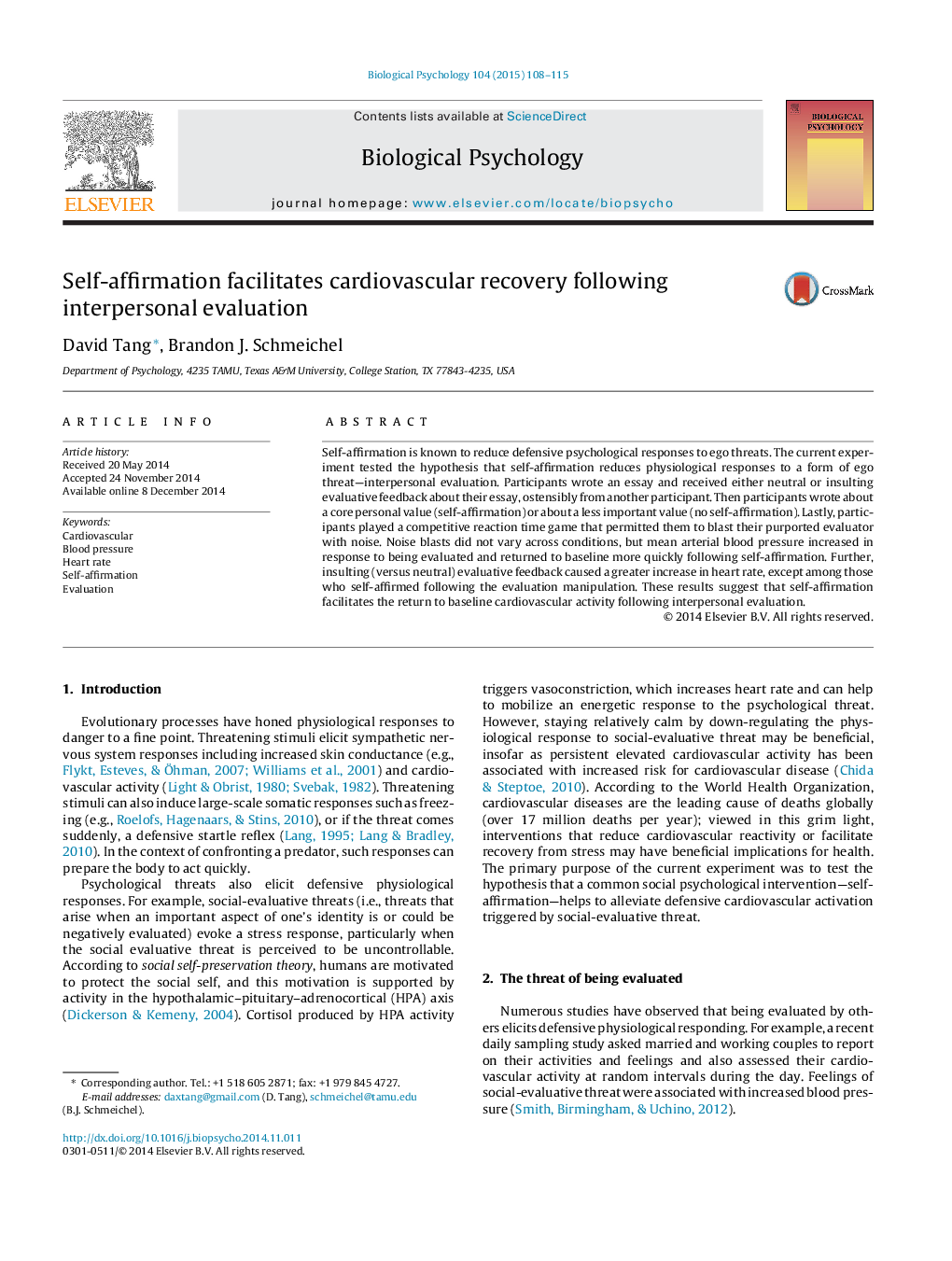| Article ID | Journal | Published Year | Pages | File Type |
|---|---|---|---|---|
| 7278666 | Biological Psychology | 2015 | 8 Pages |
Abstract
Self-affirmation is known to reduce defensive psychological responses to ego threats. The current experiment tested the hypothesis that self-affirmation reduces physiological responses to a form of ego threat-interpersonal evaluation. Participants wrote an essay and received either neutral or insulting evaluative feedback about their essay, ostensibly from another participant. Then participants wrote about a core personal value (self-affirmation) or about a less important value (no self-affirmation). Lastly, participants played a competitive reaction time game that permitted them to blast their purported evaluator with noise. Noise blasts did not vary across conditions, but mean arterial blood pressure increased in response to being evaluated and returned to baseline more quickly following self-affirmation. Further, insulting (versus neutral) evaluative feedback caused a greater increase in heart rate, except among those who self-affirmed following the evaluation manipulation. These results suggest that self-affirmation facilitates the return to baseline cardiovascular activity following interpersonal evaluation.
Related Topics
Life Sciences
Neuroscience
Behavioral Neuroscience
Authors
David Tang, Brandon J. Schmeichel,
